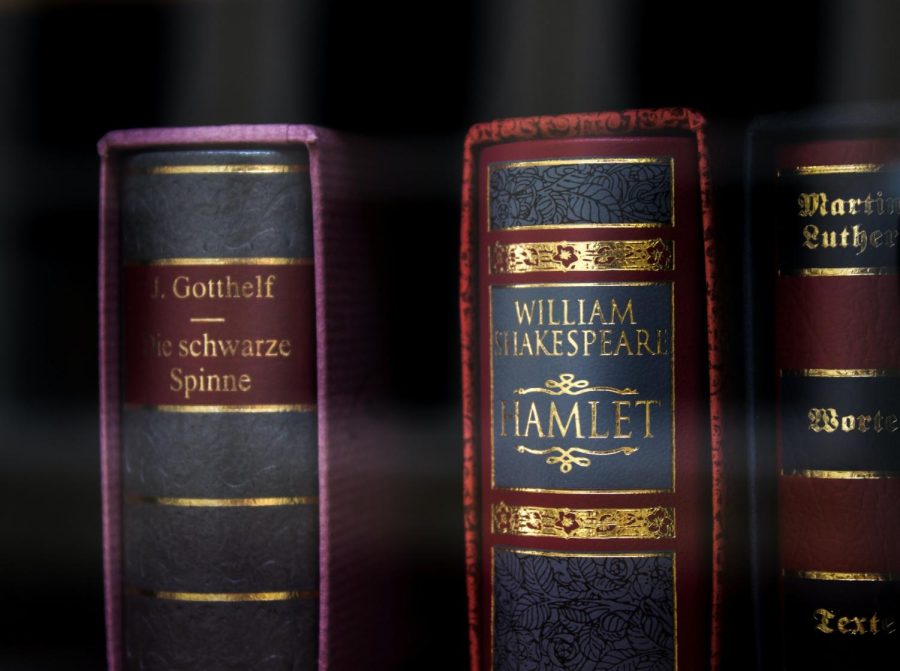Column: What literature has taught me about life
Throughout my time at Amat, I have read works from countless authors in all four years of my English classes.
“Of Mice and Men” taught me to see the dignity in every human being, and “Cat’s Cradle” showed the importance of not taking everything seriously, but it was the works of English playwright William Shakespeare that I believe to have the most impact on my worldview.
I regret to say that I’ve only read through three of his plays: “Romeo and Juliet,” “Hamlet,” and “Macbeth” (looking back on it I really should have tried to fit the Shakespeare class elective in somewhere), but these three have been particularly influential.
Out of the three, Romeo and Juliet is probably my least favorite, but that does not mean I haven’t taken any lessons from it.
I hate to admit it, but I’m not really that romantic of a person, so a lot of the love talk was pretty asinine to me. All I got from that part of the story was to stay away from rushed relationships, lest they end up the same way they do in the play.
However, I did enjoy the interplay between the two feuding families, the Montagues and the Capulets and their ultimate realization as to what their dispute has achieved.
The family feud between the two and the ultimate destruction it causes serves as a clear message that at the end of the day, hate and grudges ultimately lead to little more than destruction. I’ve tried to apply this theme to my life by avoiding long-lasting feuds and making up with people when I have the opportunity to do so.
Another prominent theme in Shakespeare’s works is that of fate and destiny.
This is an especially central part of Hamlet, my second favorite of the three. In the play, Hamlet’s father, the king of Denmark, has been murdered, and he now must decide whether or not to avenge the ghost of his father’s bidding to avenge him.
I personally am not a big believer in the whole idea of destiny, as I subscribe more to the view that life is what you choose to make it. I think it is interesting to see the whole situation come crumbling down though, as Hamlet’s extreme burden placed upon him by the situation slowly causes him to become more and more stressed, and ultimately arguably insane.
What I take from Hamlet is to not let stress overwhelm me.
While obviously as a typical high school student my problems are not as big as murder and royal ascension, it can get pretty stressful at times with all the different responsibilities I have to attend to. When I find myself in one of those moments, I try to address every problem one step at a time, instead of letting it all rush in at once.
Speaking of madness and power conflict, my personal favorite of Shakespeare’s works that I have read is Macbeth.
My enthusiasm for the medieval Scottish setting aside, the part I find most interesting about Macbeth is the power struggle and the emphasis on control.
Going back a little to the destiny thing, Macbeth is drawn to commit the crimes that he does in the play by what turns out to be false delusions of grandeur planted in his head by witches. These urges toward power and control, made even worse by his wife Lady Macbeth, resulting in him killing the king and seizing power.
But with power, comes the desire to control everything he can. The originally good-natured and chivalrous Macbeth becomes a paranoid, selfish control freak, and what goes around comes around as he too is eventually a victim of regicide.
Macbeth shows that control, while it can be a force for good, is often harmful when it is used too much and concentrated in the hands of one person. In my friendships and other group environments, I try to avoid this domineering attitude by generally going with the flow and just letting things go the way they do. Like they say, if it isn’t broken, don’t fix it.
Although it’s been about 400 years since his time and the various castles, kingdoms, princes and noble bloodlines featured in his story have all fallen by the wayside, the underlying truths in these plays remain the same, and can still be applied to the modern questions and problems we have today.











